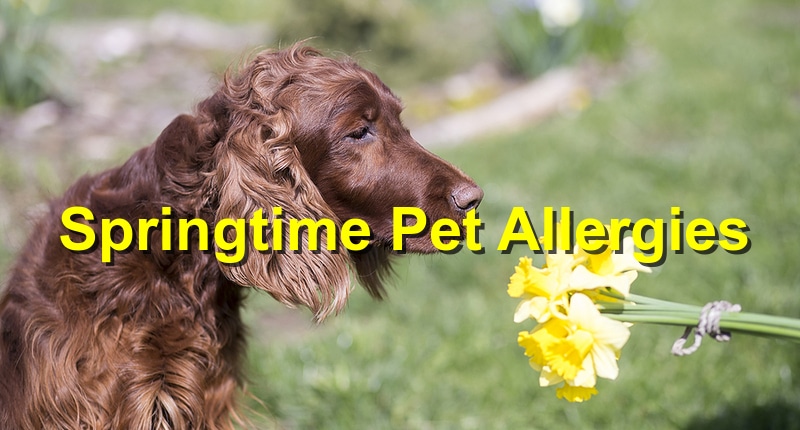As spring arrives, so do seasonal allergies for many pets. Understanding the symptoms and treatment options for springtime pet allergies is crucial for keeping your furry companions healthy and comfortable. Here’s what you need to know:
- Recognize Common Symptoms: Springtime pet allergies can manifest in various ways, including itching, scratching, sneezing, watery eyes, ear infections, and skin irritation. Pay attention to changes in your pet’s behavior or appearance, as these may indicate an allergic reaction to pollen, grass, mold, or other environmental allergens.
- Consult with a Veterinarian: If you suspect your pet has springtime allergies, consult with a veterinarian for a proper diagnosis and treatment plan. Your vet can perform allergy tests to identify specific allergens and recommend appropriate medications or therapies to alleviate your pet’s symptoms.
- Manage Environmental Allergens: Take steps to minimize your pet’s exposure to common environmental allergens during allergy season. Keep your home clean and dust-free, vacuum carpets and upholstery regularly, and wash your pet’s bedding frequently. Limit outdoor activities during peak pollen times and wipe your pet’s paws after being outdoors to remove pollen and allergens.
- Consider Allergy Medications: Your veterinarian may prescribe allergy medications such as antihistamines, corticosteroids, or immunotherapy (allergy shots) to help alleviate your pet’s allergy symptoms. Follow your vet’s instructions carefully and monitor your pet for any adverse reactions to medication.
- Provide Relief for Skin Irritation: If your pet experiences skin irritation or itching due to allergies, consider using medicated shampoos, soothing sprays, or topical treatments recommended by your veterinarian. These products can help soothe irritated skin and provide relief from itching and discomfort.
- Support Your Pet’s Immune System: Maintaining your pet’s overall health and immune system can help reduce the severity of allergy symptoms. Provide a balanced diet, regular exercise, and proper grooming to support your pet’s immune system and overall well-being.
By recognizing the symptoms of springtime pet allergies and implementing effective treatment strategies, you can help your furry companions enjoy the spring season without discomfort. Consult with your veterinarian for personalized advice and guidance on managing your pet’s allergies effectively.
References: MyPetsVets, AnimalSociety




